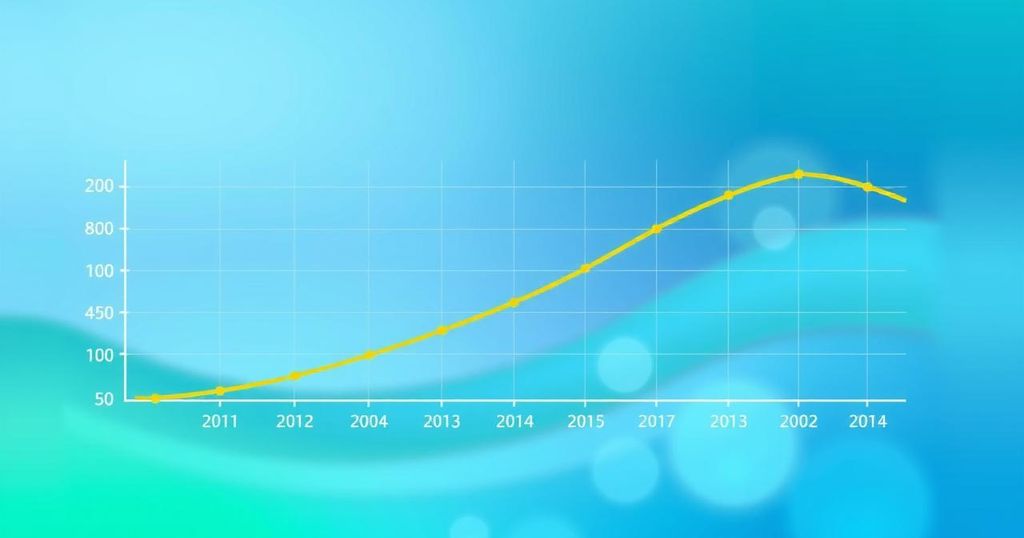Nigeria’s Passenger Car Imports Decline Due to Exchange Rate Volatility and Inflation
Nigeria’s passenger car imports diminished by 14.2% to ₦1.26 trillion in 2024, due to volatile exchange rates and inflation. The naira’s depreciation and soaring customs duties have deterred consumers, particularly affecting car sales among the middle class, now largely abandoned in the market. Sales have shifted towards government officials and wealthier buyers.
In 2024, Nigeria experienced a notable decline in passenger car imports, attributed primarily to volatile exchange rates and increasing inflation. According to the foreign trade report, car imports fell by 14.2 percent to ₦1.26 trillion, down from ₦1.47 trillion in 2023, reflecting a significant downturn in the import sector.
The report from BusinessDay indicated that the Nigerian naira faced substantial depreciation against the dollar, losing 40.9 percent in the official market despite an increase in external reserves. This situation underscores ongoing challenges in Nigeria’s currency market, which continue to affect economic stability.
The Central Bank of Nigeria (CBN) reported that the dollar’s exchange rate soared to ₦1,535 on December 31, 2024, significantly up from ₦997 on the same date in 2023. This steep rise exemplifies the adverse effects of fluctuating exchange rates on the country’s import activities.
Kelechi Achilike, a car dealer, highlighted the drastic increase in customs duties, which have quadrupled. For instance, the cost to clear a Toyota Corolla has escalated from about ₦450,000 to ₦3 million, significantly impacting pricing and sales. He noted that such high costs drive potential buyers away, leading to reduced sales volumes.
Achilike remarked that many consumers are shifting towards locally manufactured vehicles, which offer a more affordable alternative. However, he acknowledged a persistent preference for imported cars due to perceptions of durability and quality. He lamented a drastic drop in sales, reporting that he now sells only two cars a month compared to ten weekly in previous years.
He emphasized the current economic divide, stating that a true middle class has virtually disappeared, leaving only the wealthy and the impoverished. The current purchasers of vehicles predominantly consist of government officials, politicians, and individuals engaged in illicit activities, indicating a significant change in the market dynamics.
In conclusion, Nigeria’s passenger car import sector has experienced a notable downturn in 2024 largely due to volatile foreign exchange rates and rising inflation. The depreciation of the naira and increasing customs duties have discouraged consumers, particularly the middle class, from purchasing vehicles. This shift in consumer behavior has resulted in a significant reduction in car sales, with a stark division in the market between affluent individuals and the poor.
Original Source: businessday.ng




Post Comment